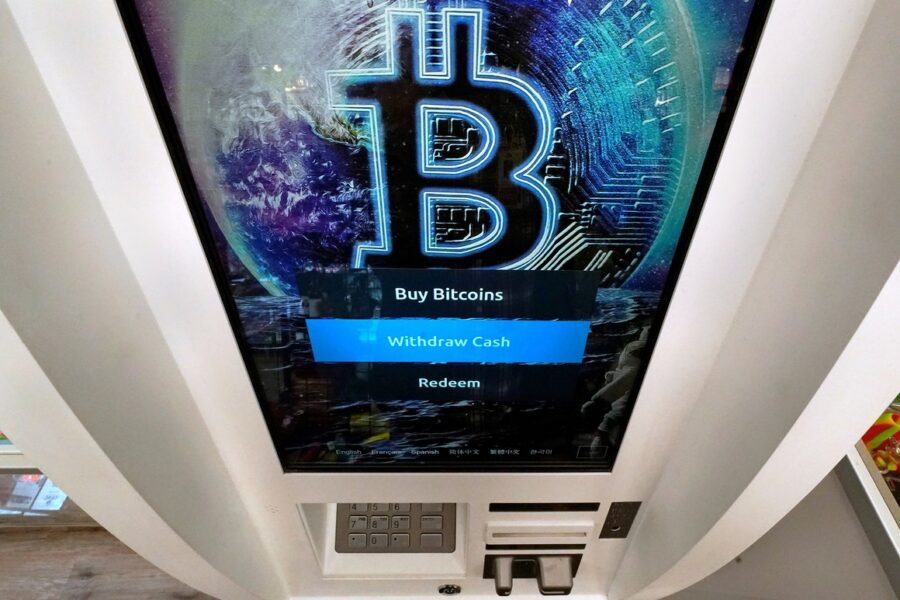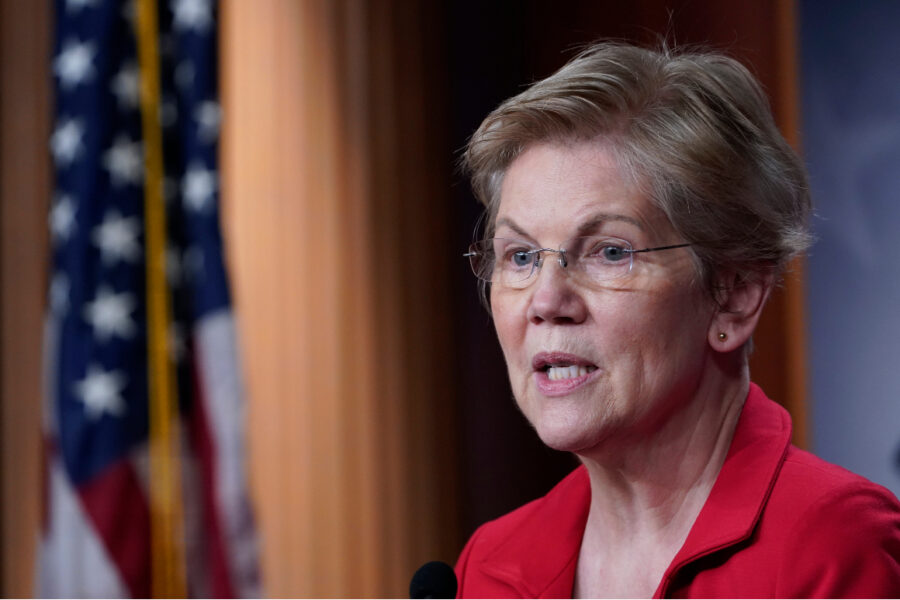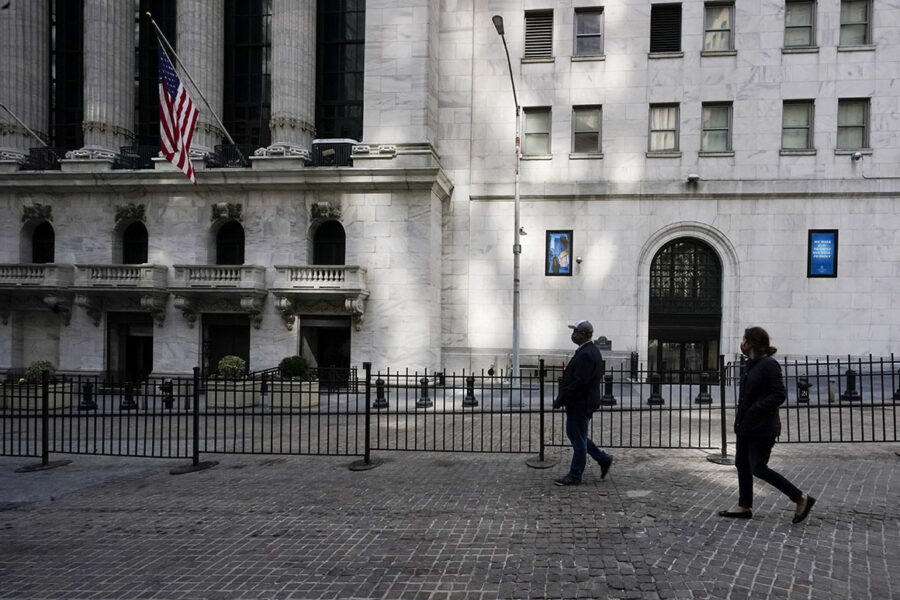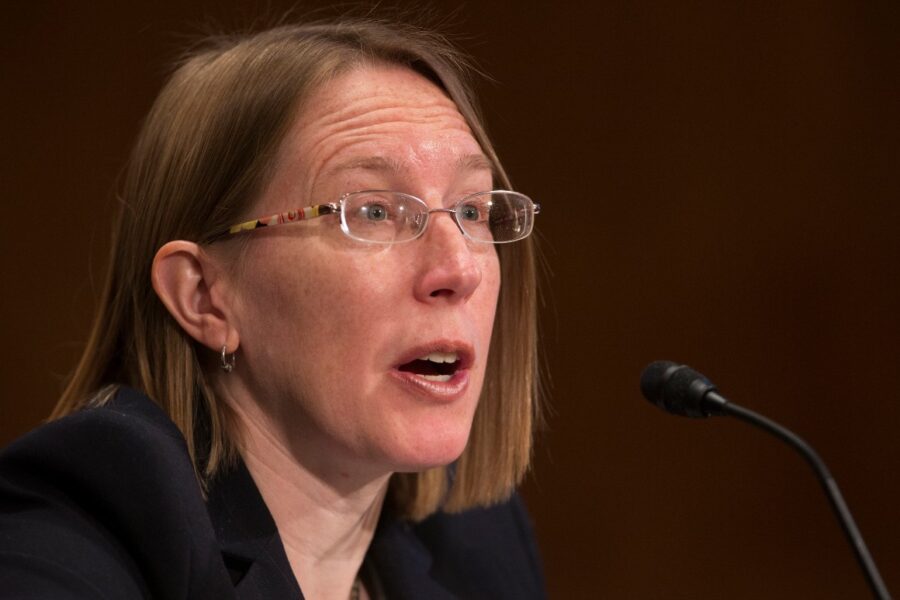Wall Street struggles to sell Washington on Bitcoin for the masses

A strong push by Wall Street to open up access to Bitcoin investment is meeting resistance from a bipartisan group of lawmakers and regulators in Washington, setting up a lobbying fight over the future of digital currency.
Major financial industry players including Fidelity Investments and Anthony Scaramucci’s SkyBridge Capital are pressing the Securities and Exchange Commission to approve their plans to launch funds on public stock markets that would let small investors tap into the rise of Bitcoin prices.
Wall Street says it’s getting in the game and trying to launch so-called exchange-traded funds linked to cryptocurrency in response to surging demand, with the market for Bitcoin alone exceeding $670 billion. Firms are pouring money into lobbying to shape regulation and to convince skeptical policymakers that digital currency is viable for wider adoption for the masses.
But lobbyists face an uphill battle that has gotten even tougher after dramatic price swings in recent days, with Bitcoin plunging nearly 40 percent since early May. The investor risks are building on broader concerns about whether cryptocurrency fuels money laundering, aids tax evaders and could threaten the safety of the financial markets themselves if broadly adopted.
“Our country needs to take a deeper dive on how to deal with cryptocurrency before any regulations are put in,” Sen. Elizabeth Warren (D-Mass.), a member of the Banking Committee, said in an interview. “The wild swings of crypto prices sound an alarm that every regulator hears.”

The debate over Bitcoin exchange-traded funds, or ETFs, will be an important indicator of how far Washington is willing to let digital currency markets flourish amid growing questions about whether crypto serves any value to society or is just a speculative fad that carries real risks for investors.
Bitcoin is the biggest of the virtual assets, which unlike the dollar are distributed outside of government control and often operate on a decentralized basis. The pending proposals for Bitcoin ETFs would allow more investors to gain exposure to the digital currency without having to purchase it directly.
The funds would essentially replicate the prices of Bitcoin and other cryptocurrencies. Investors could buy shares of the funds and sidestep the need to have so-called digital wallets to hold the digital currency. The complications of handling and trading the virtual assets would be left to fund managers.
The SEC has long taken a skeptical view of the funds, going as far as rejecting earlier proposals by the Winklevoss twins — of Facebook fame — because of worries that the agency could not guarantee safeguards against fraud and manipulation.
In addition to pending fund proposals backed by Fidelity and Scaramucci’s SkyBridge, One River Digital Asset Management is being advised by former SEC Chair Jay Clayton as it pitches a “carbon neutral” Bitcoin ETF. Clayton led the agency in the Trump era and didn’t sign off on any of the cryptocurrency fund proposals during his tenure. While in office, Clayton highlighted concerns that cryptocurrency markets were ripe for fraud and manipulation and said that regulators had a host of issues to resolve before permitting ETFs.
The SEC, which is responsible for allowing the funds to launch, appears to be in no hurry to expand access to Bitcoin investments. The agency’s new chair, Gary Gensler, has emerged in recent weeks as a clear crypto skeptic. That surprised some advocates who were hoping he’d be more amenable to Bitcoin after teaching and researching digital finance at MIT.
Gensler has flagged fundamental concerns about the operations of the underlying cryptocurrency market that the ETFs want to track. He says exchanges that facilitate the buying and selling of digital currency aren’t adequately regulated and that market data is lacking.
“Altogether, this has led to substantially less investor protection than in our traditional securities markets, and to correspondingly greater opportunities for fraud and manipulation,” Gensler said in House testimony Wednesday.

Despite the growing industry enthusiasm, Wall Street is also split on the future of cryptocurrency. Some executives are dismissing the push to expand access even as their firms try to satisfy customer demand.
JPMorgan Chase CEO Jamie Dimon said in House testimony Thursday that his company — the nation’s largest bank — was debating how to make it available in a safe way. But Dimon’s personal advice? “Stay away from it.”
“That does not mean the clients don’t want it,” Dimon said. “It goes back to how you have to run a business. I don’t smoke marijuana, but if you make it nationally legal I’m not going to stop our people from banking it.”
One of Gensler’s colleagues is urging him to act. SEC Commissioner Hester Peirce, a Republican on the agency’s five-member board, said Gensler’s recent warnings “conveyed the overly conservative approach that has typified the SEC in the crypto arena.” She said the agency should move forward with approval of crypto funds on their merits.
Six applications are pending with the SEC to list cryptocurrency ETFs on stock exchanges run by the New York Stock Exchange and Cboe Global Markets. Wall Street titans are lining up to provide services for the funds, including Morgan Stanley, Bank of New York Mellon and State Street.

“Given the growth of the market and increased interest, the stakes are high as people compete to be the first approved,” Peirce said.
By not bringing digital currency into the regulatory mainstream, Peirce and industry players say the SEC is allowing crypto activity to remain outside the purview of government watchdogs.
“What that does is it allows the wild Wild West to continue,” said Tom Quaadman, executive vice president of the U.S Chamber of Commerce Center for Capital Markets Competitiveness.
Jan van Eck, the CEO of the $71 billion asset manager VanEck, said those who oppose Bitcoin ETFs — like the one his firm is proposing — “are effectively forcing investors into inferior fund structures and less regulated venues.”
Critics of moving forward with the funds say the SEC needs to first address underlying risks in the cryptocurrency market.
“The regulatory concerns about Bitcoin and other cryptocurrency markets go far beyond ETF issues,” said Joseph Cisewski, senior derivatives consultant and special counsel to the Wall Street reform group Better Markets. “The crypto exchanges operate almost entirely in the dark, and we’ve repeatedly seen how risks increase and evolve when they are allowed to develop in the cracks of our regulatory system.”.
On Capitol Hill, lawmakers from both sides of the aisle — including staunch Bitcoin advocates — are unconvinced or on the fence, indicating that the SEC will face political pressure to continue to slow-walk the issue.
The companies “need to show their contribution to our economy, and in that sense, they really haven’t done well,” Senate Banking Chair Sherrod Brown (D-Ohio) said in an interview.
“I would caution the commission against prioritizing the review of cryptocurrency ETFs over fulfilling the legal directives of Congress,” said Rep. Brad Sherman (D-Calif.), who leads SEC oversight in the House and wants the agency to finish rules languishing from the 2010 Dodd-Frank law.
Republican lawmakers who champion free markets and digital currency said in interviews that they too are taking time to study the issue before backing the efforts.
“I’m not clear yet on exactly what we should do,” said Sen. Cynthia Lummis (R-Wyo.), who in May launched the bipartisan Senate Financial Innovation Caucus to encourage policy development in crypto and other financial technologies.
Sen. Thom Tillis (R-N.C.), who with Lummis serves on the Senate Banking Committee, said he’s concerned about the accuracy of the underlying reference prices for the funds because crypto trading occurs on venues that aren’t regulated by the SEC.
Tillis said the fund applications “have to be scrutinized, mainly from a consumer protection perspective.”
“We need to figure out how we deal with this,” said Sen. Jon Tester (D-Mont.), a member of the Banking Committee. “Otherwise you’re going to have a lot of people lose a lot of money.”
Go To Source
Author: POLITICO

